Posted on October 21, 2020
We Are Not Okay: Southwest Louisiana After Laura. And Delta. And Covid. (Oh, my!)
One of the most frustrating things about going through Laura and Delta and then hearing everyone who’s ever been through any hurricane tell you how much they understand and how similar their storm was as they offer up unsolicited advice on how to recover is that their recoveries had different rules. Literally.
Insurance has changed. FEMA assistance has changed. All aid policies have changed. The help simply isn’t there anymore, and what little remains has been significantly minimized to the point of being effectively useless.
Insurance policies are underpaying (when they pay at all), charging separate deductibles for each storm through a legal loophole, requiring absurd levels of documentation and evidence of damages to such ridiculous extremes that simply going through the effort of providing such evidence would end up costing people more than if they just replaced the items on their own, all while denying every claim they can as desk adjusters reevaluate the determinations made by their own field adjusters and reduce their findings in favor of the insurance companies.
FEMA only steps in if you don’t have insurance, which automatically excludes all the people who already aren’t getting the coverage they’ve paid for. When it does help, the funds are small and aid is slow to come, if it comes at all.
There have been no significant national fundraisers to help Southwest Louisiana like there were after other storms hit more recognizable cities. Charitable organizations lack donations and volunteers to be able to effectively help people. The rest of the nation has moved on and assumes everything is back to normal here.
It isn’t.
Remember, while the same area getting hit by two separate hurricanes within weeks of each other itself is unprecedented, all of this is happening in the middle of an ongoing pandemic that had already decimated the nation’s economy months earlier and absolutely devastated local economies nationwide.
People just don’t have the money to spend after months of covid along with two evacuations and two rounds of rebuilding. Local businesses don’t have the money to rebuild and resupply their stocks. Thousands of workers are unable to work, due either to their places of employment being closed or destroyed, or to the complete lack of anywhere to live if their homes were significantly damaged.
Lake Charles, a working-class city of roughly 78,000 people, has been eviscerated by Hurricanes Laura and Delta. Thousands of residents remain displaced, and the dire needs of the city have been overlooked. https://t.co/SpVSAOkh1r
— The New York Times (@nytimes) October 20, 2020
There are no available hotel rooms, with the few operational places booked solid. There are no available rental properties, and what few remain have doubled or tripled their rents. Trailers, campers, and RVs are impossible to find and cost a small fortune if you’re lucky enough to stumble upon a battered up and heavily used model just to have some kind of roof over your head.
It’s an awful situation and no one has been through it before. No one has been through two back-to-back hurricanes before, with one being on record as the strongest storm to ever hit the state. No one has done it in the middle of a global pandemic. And no one has done it since all the laws and policies were quietly changed to favor corporate interests after previous storms cost them too much.
See beyond your own experience and realize the world has changed since whatever words of advice or criticism you had to offer were relevant. If you’re willing to actually help us, you are most welcome here. If not, we’d all very much appreciate it if you’d just shut up.
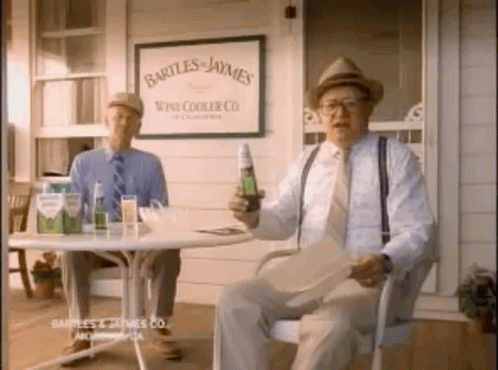
Posted on October 14, 2020
The Social Dilemma Is Just The Beginning
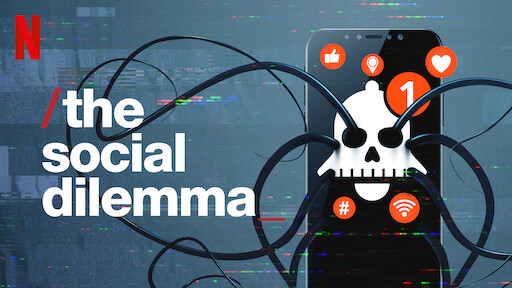
For everyone shocked at The Social Dilemma, you really shouldn’t be. Data mining and user manipulation are overt purposes of the various social platforms. It’s basically printed right there on the front of the social media box.
But what you don’t see if you just watch The Social Dilemma (and you really should; it’s a fantastic documentary) is how much worse everything is, how much of your data is mined by websites loading your browser to the gills with tracking cookies, banks, apps you install on your phone, and even your own ISP. (ISPs have been selling user data for ages, and they have a lot more detail on you than Facebook or even Google.)
Besides, data mining is just the start. The pipeline works like this: data is mined then analyzed to produce predictive analytics that are then used to programmatically select and serve not only the most influential advertisements but also the most relevant content that could motivate you toward making specific, favorable choices.
And they’re good at it, too.
It’s why people think their microphones are listening to them after they mention a product to a friend and then see ads for that product the next day. Your microphone doesn’t come into it. The various systems just know you so well (data mining) they can predict (predictive analytics) what advertisements and content you’ll buy and click with alarming accuracy, often before you even realize you want them.
Advertising itself is only the most recognizable, overt, and relatively benign goal, anyway. The real purpose is user manipulation. Being able to accurately predict a population’s reactions to various events and policies has long been the holy grail of any system of control because if you know how people will react to something, you can run models to find the best reactions for realizing your ultimate goals. There are different terms for it – years back we called it forecasting – but it’s all the same in the end. If you know how people will react to anything, you can figure out what you need to do to get the reaction you want.
This is all big money at high level stuff, though. Most people just put a little money into the machine and tell it what they want to happen. Want to find people interested in buying your handmade whatever in your Etsy ship? Just toss a couple hundred bucks to Facebook, check off a few demographic tick boxes, and algorithms will take it from there. Data is the new oil, and the people who can most successfully mine and process it are ridiculously wealthy and, consequently, ludicrously powerful.
It’s not conspiracy. It’s just how the modern consumer technology landscape works at the most fundamental level. It’s surveillance capitalism, and it shows no signs of slowing. Sure, it started mostly innocently, with ideals of personal digital assistants curating content and advertising to your interests so you could dial back on the cacophony of information noise in your life, but it didn’t take long for the powers that be to realize the unprecedented level of control these systems offer.
These forces are the cause of the disease that leads to The Flat Earth Society, Birthers, 9/11 Truthers (who have obviously never watched the blacksmith at a renaissance festival and simply can’t understand you don’t need to melt steel to bend and break it), anti-vaxxers, and QAnon. They are what made Brexit and Trump possible, and they’re what’s keeping progressive policies from making any, well, progress despite the overwhelming majority of Americans favoring most of them. They’re the reason we can’t agree on climate change or economic policy or anything at all anymore, really. They’re why we have All Lives Matter people who genuinely believe the majority gives a damn about their racist, bigoted, ignorant ideology.
The echo chambers of social media and the programmatic serving of content and advertising are why a small minority of toxic assholes mistakenly believe their outmoded, outdated, toxic views are still somehow the norm. That most people really do think like them in 2020, rather than the relative handful of walking anachronisms who actually do. That anything they think matters to anyone other than the aging population of their peers that’s slowly dying out right alongside their Cro-Magnon politics.
But they won’t see any of this, not unless they come looking for it. The various algorithms running the internet today aren’t likely to show my little website to any of them, which is just as well. They’re the type of people who like to leave comments, as if this is site is some kind of diary blog from whatever past it is they live in. Nobody reads the comments anymore, Karen. Nobody cares, least of all me.
So yeah, watch The Social Dilemma and be horrified. Just understand it’s only the tip of a very large, very deep, very dangerous iceberg, and our captains of industry are steering us right into it, full steam ahead.
Cool.
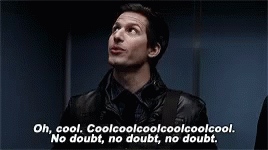
Posted on September 16, 2020
What It’s Really Like To Survive A Historic Hurricane, For People Who Think They Know But Don’t
This one is dedicated to everyone who made it through Hurricane Laura, but it’s meant for everyone who didn’t have to. If you live in the affected area, send it to your friends and relatives who don’t live here and might mean well, but whose earnest advice and make-believe empathy are anything but helpful.
I wish people who don’t live in a hurricane zone could remotely understand what it’s like to go through a historic storm. Every hurricane is terrible in its own way, but the really bad ones – the historic ones – are on a whole other level.
Everyone affected by this storm – which is everyone who lives anywhere in Southwest Louisiana (and parts of Southeast Texas) – has gone so far past exhaustion at this point, there’s really no word severe enough to convey just how over it all of us are. We can’t do it anymore. We’re past the breaking point. But here’s the thing: it doesn’t matter.
Hurricane survivors don’t get to burn out and take a break because there are no breaks. There is no rest, no brief respite from the million things that have to be done, no distraction from the devastation all around us. If you’re lucky and your home is livable with power and probably/maybe clean water, you have to worry about when you can get to the store during their limited hours, and what might be available so you can scrape together some kind of dinner every night. You might have power but your neighbors don’t, so the generators are still running 24/7. Sleep comes hard, if it comes at all.
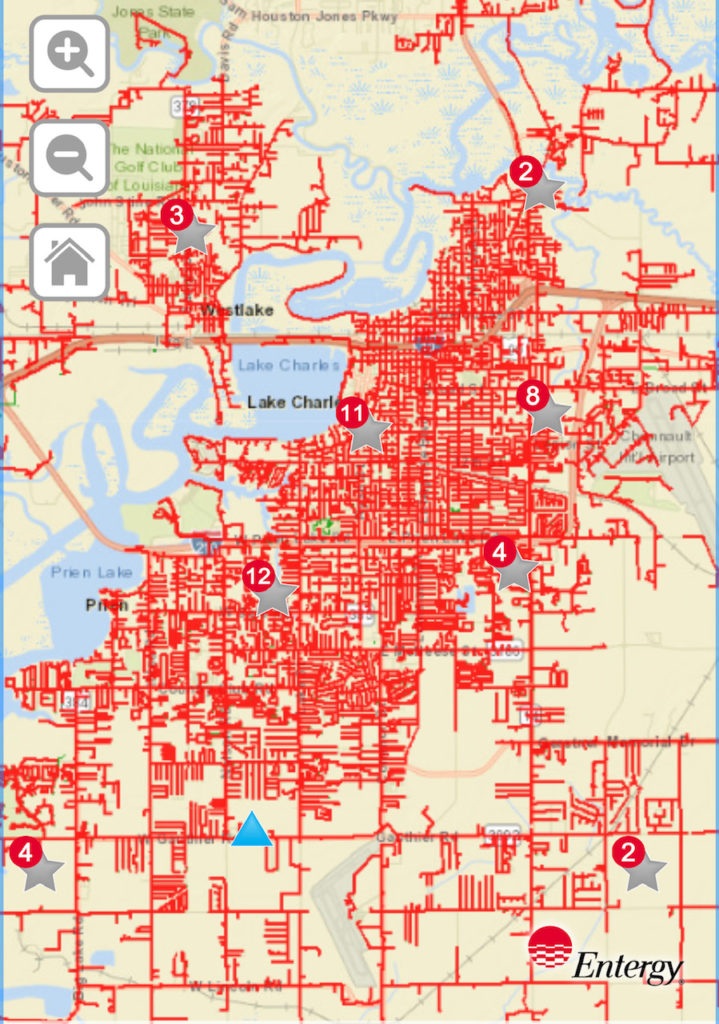
If you were less lucky, you’re still trying to dig out whatever bits of your life you can still excavate from the rubble of what was once your home before you have to say enough’s and enough and write off anything left as unsalvageable, even when all that’s left are mementos and memories that can never be replaced.
Most people are somewhere between the extremes, with severely damaged but not entirely destroyed homes, which means trying to work while meeting with insurance adjusters, sitting on the phone while calling contractors and listening to hours upon hours of terrible hold music, only to hit one dead end after another, with this claim being denied, or that appraisal being too low, or wait, you still need to find a place to live for the next year or so while you wait your turn in line for a roofer or plumber or electrician.
Meanwhile, the rest of the world has moved on and expects you to behave as if nothing at all has changed. As if you still have a complete home, with walls and a roof and electricity and clean water and internet access so you can finally file your TPS reports with corporate and get Karen in Accounting off your back.
Bill collectors start calling. They’ve sent you several notices they insist you should’ve received despite your house being off its slab and you not having a mailbox. All the promises different companies made of discounts and grace periods during the storm go flying out the window as just so much PR hot air when you can only get as far as some dude named Peter in India who has no idea what you’re talking about and can only help you with setting up a payment plan for a modest penalty fee.
The other day, I paid for a full month of electricity I did not use, a full month of internet I still can’t use, and a month’s insurance to a company that has yet to give me a penny. A post in a local Facebook group for hurricane recovery popped up last night with a guy renting out campers – yes, campers – for $200/day or $5,000/month, and I’ve already seen rental properties renting at twice their pre-Laura rates. These are the kinds of things we’re dealing with and will continue to deal with for months and years to come, all while trying to piece our lives and homes back together as we continue playing along with the rest of our obligations as if everything’s fine.
Then we get to listen to all the people who’ve gone through anything stronger than a thunderstorm tell us they’ve been there and know how we feel. That they know, somewhere where the climate is moderate and they don’t even need air conditioning to survive, what we’re going through. That they actually understand what working and sleeping in 100+ degree heat and 97% humidity every day, never able to escape it, is like. That they have even the slightest concept of mosquito swarms so thick and so bad, they’re literally killing off herds of livestock.

Life goes on everywhere but here, where we just experienced the strongest hurricane to hit the Louisiana coast in 150 years, but everyone around us wants to act like it’s not really that big of a deal while comparing it to this storm or that storm they went through without ever having set foot in a city like post-Laura Lake Charles and seen the unprecedented level of devastation across not only our entire city but the entire region. It’s the same everywhere: barely any structures came through the storm unscathed, with nearly everything taking some level of damage from the moderate to severe and straight on through to catastrophic.
I’ve lived through every named stormed to hit the Gulf Coast since 1975, so I can speak on this with at least some level of authority, and I’ve never seen windstorm damage of this magnitude at this scale. Sure, I’ve seen the same level of localized damage, and I’ve seen widespread lesser damage, but never this much complete destruction over this large an area. That’s the difference. That’s what we’re dealing with that people who’ve been through other storms haven’t. When I say “we” I’m not talking about me, my family, our friends, or our neighbors. I’m talking about an enormous swath of land and hundreds and hundreds of thousands of people all hit the same, all at once, with everything being affected across hundreds of miles. No, Karen. You don’t know what it’s like.
The only people who think they’ve gone through a hurricane remotely similar to Laura are people who didn’t go through Laura.
We barely have power back, with much of what’s been done being piecemeal temporary fixes just to keep us going until more permanent repairs can be made. Clean water is still hard to come by, and internet? What’s the internet now in Southwest Louisiana but tin cans tied together on a string we make squeaky-squawky noises through and pretend like we’re doing something. Seriously, there is no internet access here. All most of us have right now are our cell phones or mobile hotspots (if we’re lucky enough to score one before the latest shipments sell out), with the bandwidth of functional cell towers maxed out as everyone tries to get work done or stream movies at resolutions so pixelated and blurry, we’d be better off just reenacting our favorite scenes on the front lawn where our living rooms used to be.

On top of everything else, we’re still in the days of COVID-19. And, despite how you might feel about our country’s (and state’s) response to it – and a lot of people sure do feel all types of ways about it – the fact is, like it or not, we’ve all been under Phase Something-Or-Other since March. The economy is in shambles, we haven’t been able to go out and socialize or do anything normal for months, and here comes the most devastating hurricane I’ve ever personally witnessed. Even if you’ve been through an awful storm, did you do it during a pandemic? No. No, you did not.
Well, unless you’re reading this after Sally and probably Wilfred or Alpha, Beta, Gamma, Delta, Epsilon, and Zeta hit after we run out of names because this year is a legit Greek Tragedy and just can’t seem to stop getting worse.
UPDATE: Well, I guess Tropical Depression 22 is Beta now because two other storms organized faster and stole the names for Wilfred and Alpha and OMG SOMEBODY PLEASE MAKE IT STOP.)
SECOND UPDATE: Now that we’re nine months into a historic global pandemic and SWLA is about to experience an unprecedented second major hurricane just a little over a month after being devastated by the strongest hurricane in Louisiana history (tied with one in 1856), people will finally stop playing my storm was worse than your storm.
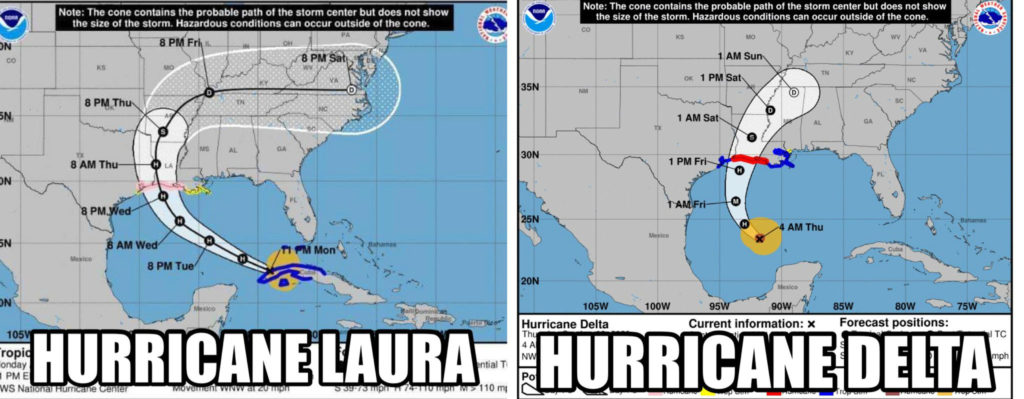
Anyway, the point is it’s rough. It’s been rough for weeks and it’s going to stay rough for more weeks. And months. Maybe years for some. A lot of businesses won’t rebuild. A lot of locals will move somewhere else or just plant roots in whatever city they evacuated to. Renters are going to have to figure out if staying here is worth it after landlords send rent skyrocketing to profit off insurance companies willing to pay outrageous rates for their policyholders to have places to live while their actual homes are being repaired or rebuilt. Everything is going to get more expensive, wages aren’t going to go up to compensate, and large swaths of the city will be entirely remade by the powers that be, their populations removed and relocated through the power of economic policy.
All that said, the future is not as bleak as it seems right now. Communities are coming together to help each other. Volunteers are jumping in to lend helping hands where they can. There are lots of resources and plenty of information available. Yes, there will be a lot of greedy people exploiting the situation, but good people will always be there, helping each other. Will it be enough to rebuild everything just like it was? Probably not. Can we build something better? Hopefully.
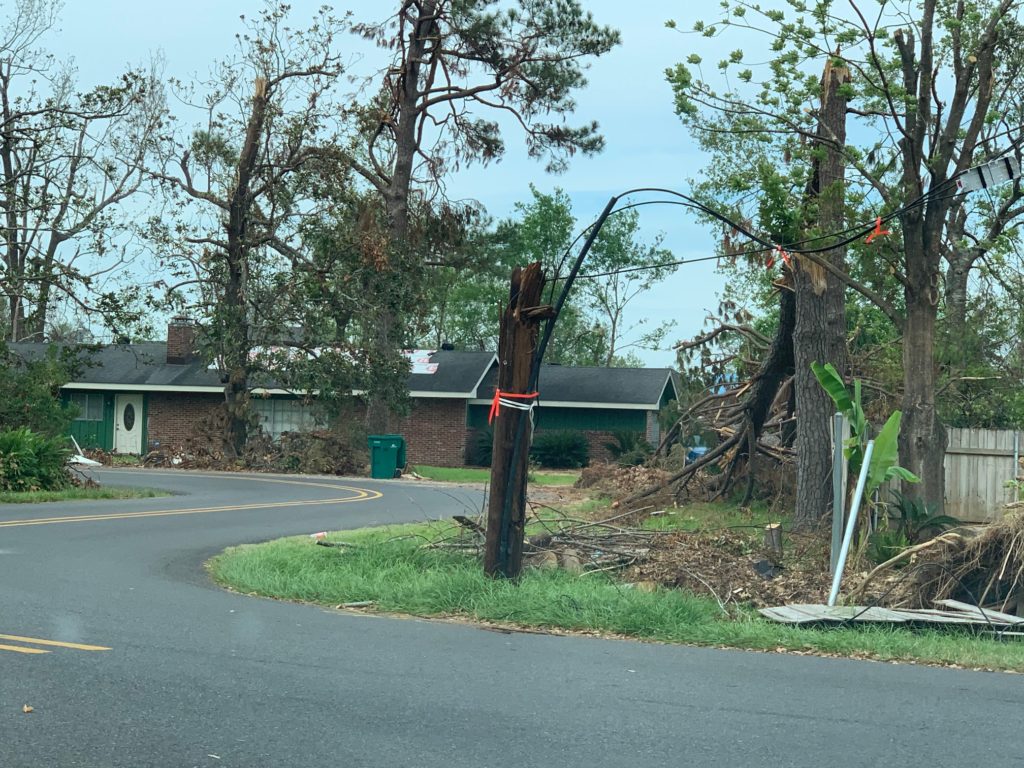
This is what “fixed” looks like right now.
I wish I had more pictures to share with people who haven’t seen the devastation firsthand, but the roads are still difficult to navigate, there’s still debris to dodge (roofing nails and other sharp, tire-puncturing hazards are everywhere), and whenever I get out on the roads, I’m too busy driving and trying not to die at four-way intersections nobody knows how to properly react to when the stoplights are out to take photos. (There’s this nice gallery from a local photographer over on Facebook, though.)
So to everyone who wants to help but doesn’t live here or who has never been through anything like Hurricane Laura – and very few of you have – then maybe instead of trying to identify or one-up us with your personal natural disaster stories, just listen. Listen, maybe nod in agreement here and there, then offer to help if you can. If you can’t, then sometimes just listening is enough.
As for the rest of you who aren’t actually interested in lending a hand and just want to either talk at us or demand we just get on with our lives as if nothing is wrong, we’re doing the best we can with next to nothing and every chip stacked against us.
Give us a break.
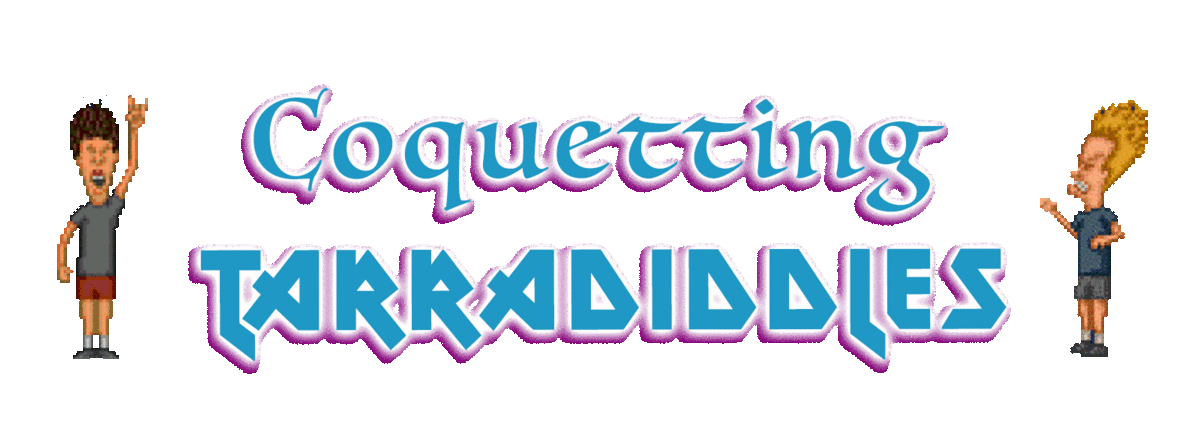
You must be logged in to post a comment.